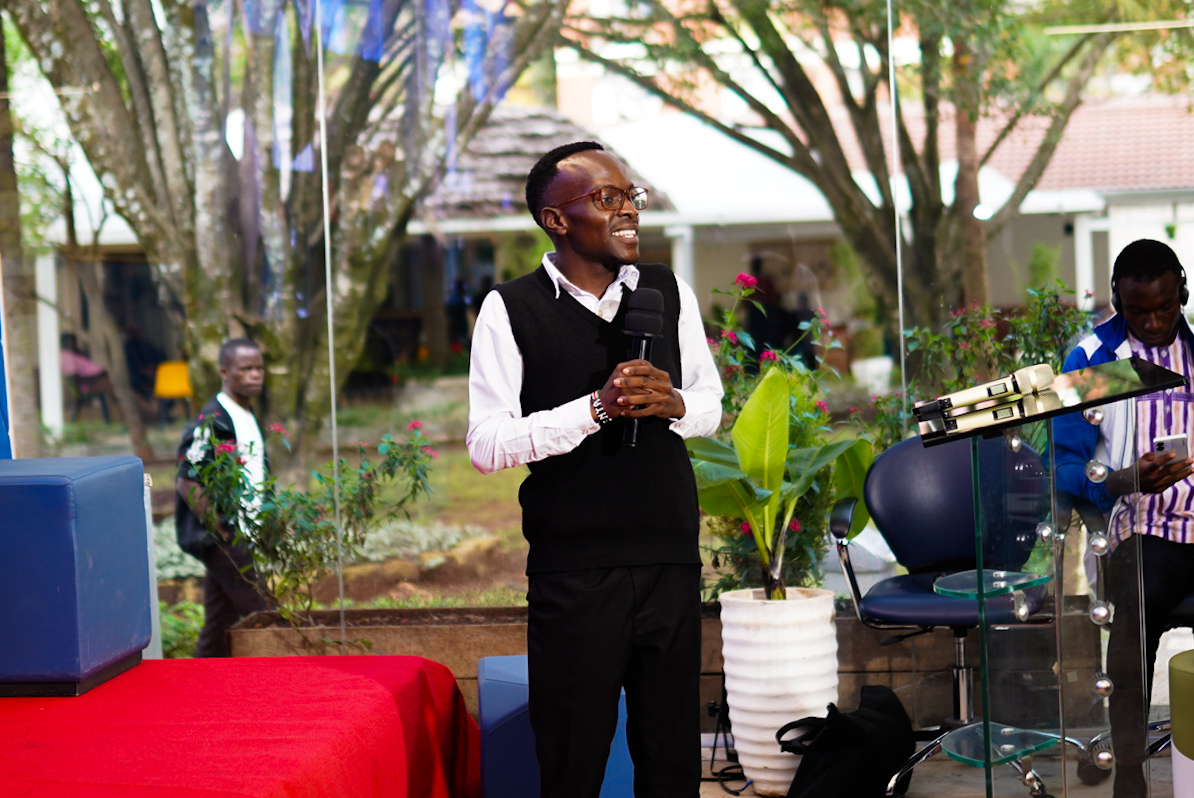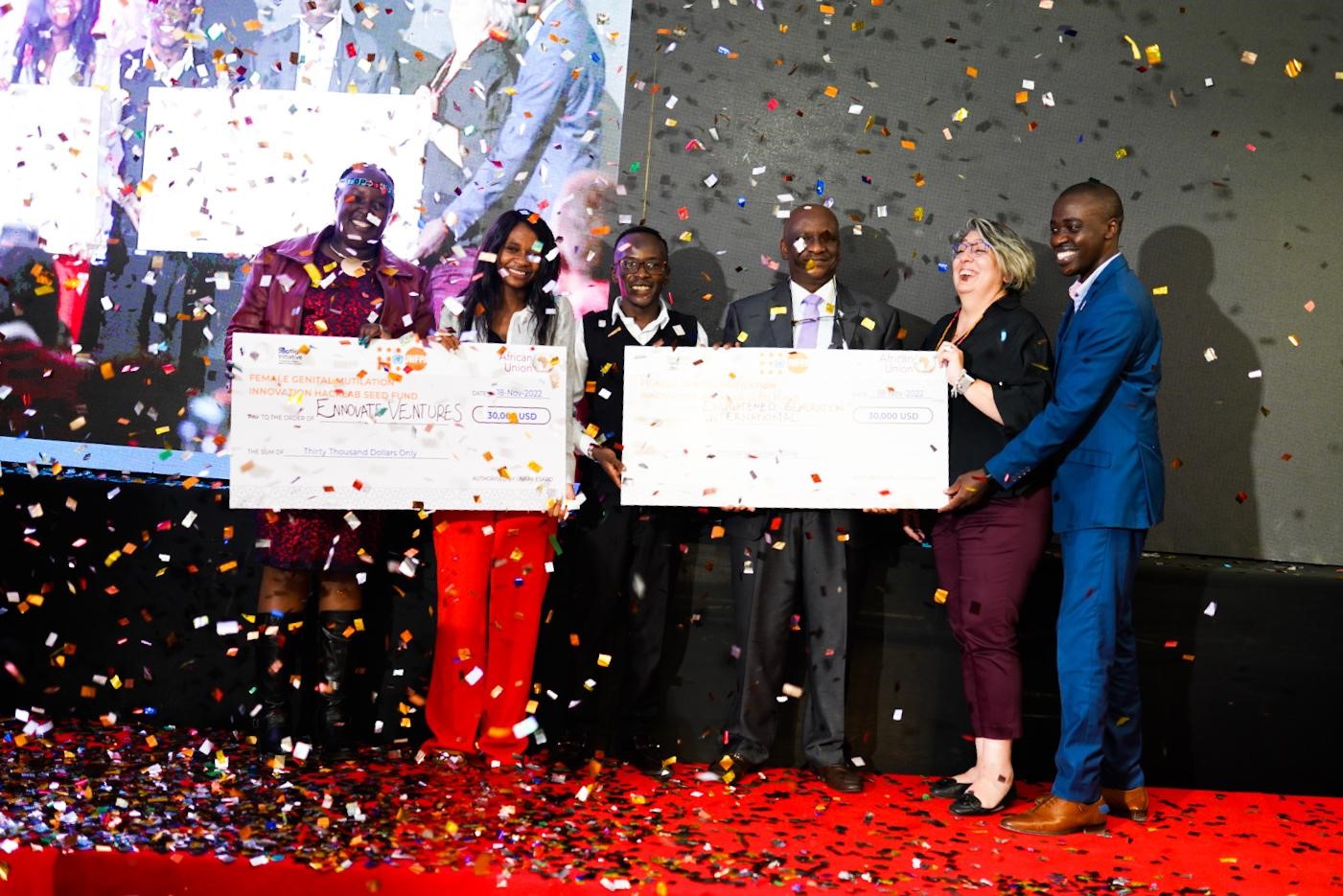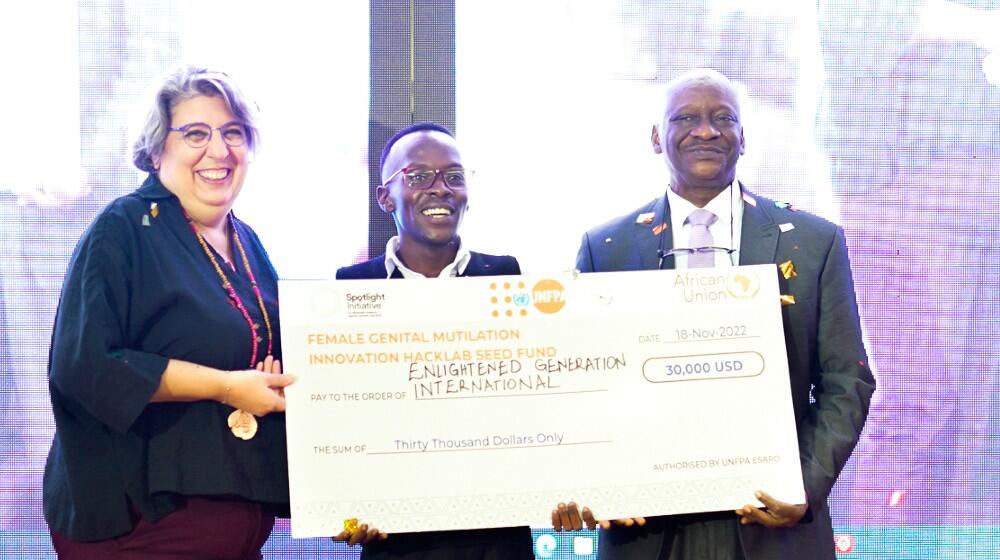“FGM has had an impact on my family, as my grandmother and aunts all underwent the cut,” says 23 year old Mack Marangu. ‘Even though the community understands the harm it brings, girls continue to be subjected to the brutal act so as to conform to culture.”
After graduating from university, Maragu’s passion for social innovation led him back to his home county, Tharaka-Nithi, where he joined Enlightened Generation International, a community based organization working to uphold women and children’s rights.
“I started to interrogate interventions being carried out to end FGM in my community and realized that many of them were geared towards survivors, and very few focused on prevention and protection of at risk girls,” says Marangu. This led him to begin work on a mobile app that gathers real-time data on school attendance for girls per age cluster and geographic location. Alarming trends identified trigger an alert which is sent to law enforcement for further investigations and a welfare check on the girls.

Hacklab pitch event
Tharaka Nithi County is among Kenya’s 22 FGM hotspots, with 71 percent of women aged 15-49 years having undergone some form of FGM. Secrecy and new trends such as cases of health officers performing FGM have made it more difficult for the government and non-government actors to end the illegal practice.
“The UNFPA FGM Innovation Hacklab presented a great opportunity for me to pitch a solution that can improve the quality of life for girls in my community by shielding them from FGM, while at the same time safeguarding their right to education,” says Maraga. More than 400 smart phones installed with the attendance tracker App have been distributed to schools across Tharaka-Nithi for use by teachers and school administrators to record attendance of girls among the at risk age groups of 7-17 years.
Maragu’s innovation was among two innovative solutions awarded in the UNFPA FGM Innovation Hacklab Initiative which supports Africa’s young people and youth organizations in developing innovative solutions to end FGM. Tanzania’s Glory Mlagwa of Ennovate Ventures also emerged winner, for the creation of an innovative platform that disseminates community health information on FGM through media, visual arts and community outreach sessions.
Both winners received $30,000 in seed funding to support the scale-up and growth of their solutions, as well as incubation support coordinated by AfriLabs.
The FGM Innovation Hacklab initiative provides a platform for young people to share innovative ideas and solutions to fast track the ending of FGM across Africa. It is organized by UNFPA, the Spotlight Initiative Africa Regional Programme (SIARP) and the global UNFPA-UNICEF Joint Programme on the Elimination of Female Genital Mutilation. This year, the hacklab engaged more than 100 innovation incubation/accelerator hubs across Africa, and more than 300 innovators working on achieving bodily autonomy, especially innovative solutions to end FGM.
“The African continent has the youngest population in the world. UNFPA is committed to creating opportunities for this generation to work and innovate toward the sustainable development goals,” said UNFPA Kenya Deputy Representative, Dr. Abiodun Oyeyipo.

community health information on FGM through media, visual arts and community outreach sessions.


